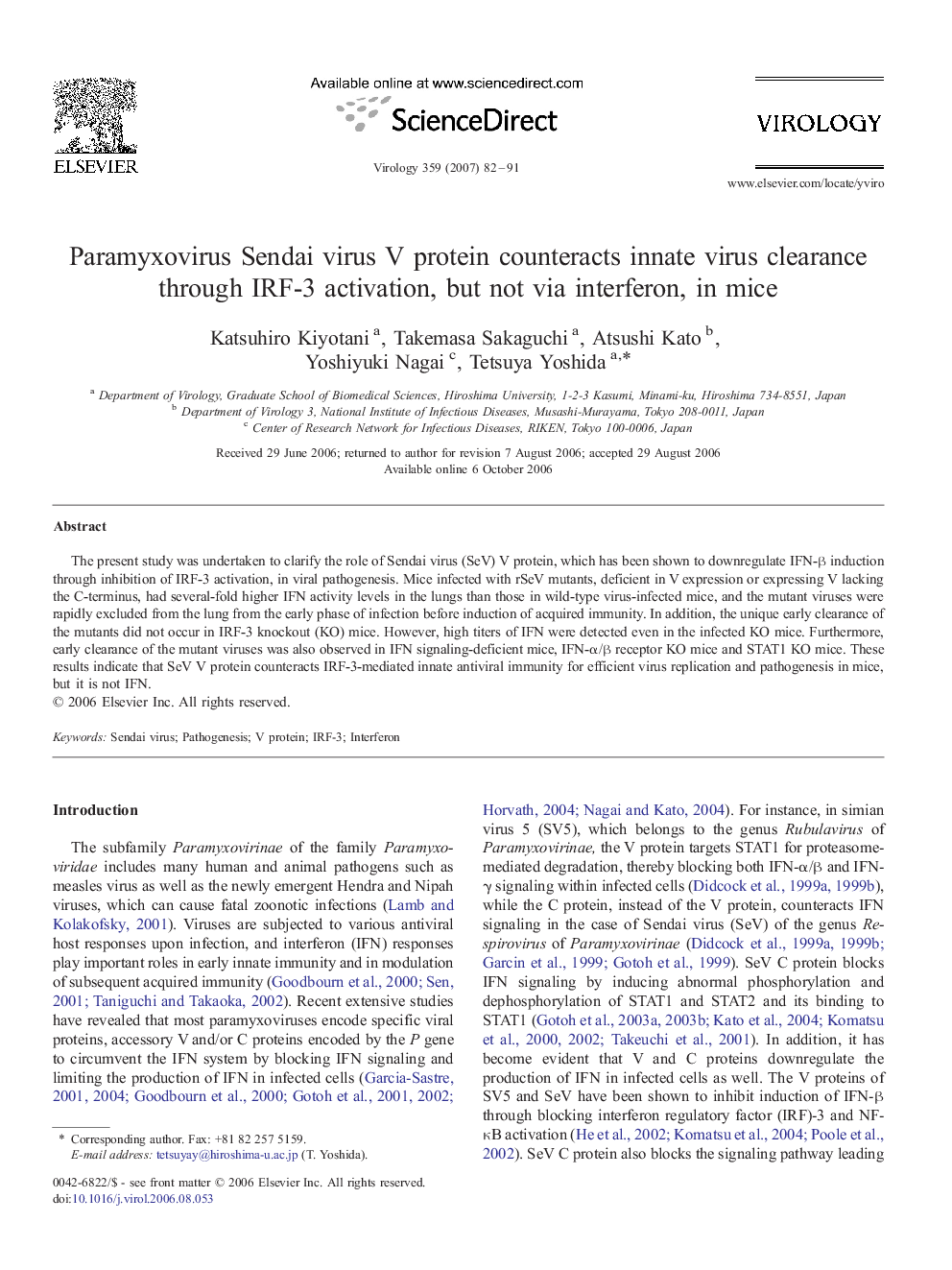| Article ID | Journal | Published Year | Pages | File Type |
|---|---|---|---|---|
| 3427476 | Virology | 2007 | 10 Pages |
The present study was undertaken to clarify the role of Sendai virus (SeV) V protein, which has been shown to downregulate IFN-β induction through inhibition of IRF-3 activation, in viral pathogenesis. Mice infected with rSeV mutants, deficient in V expression or expressing V lacking the C-terminus, had several-fold higher IFN activity levels in the lungs than those in wild-type virus-infected mice, and the mutant viruses were rapidly excluded from the lung from the early phase of infection before induction of acquired immunity. In addition, the unique early clearance of the mutants did not occur in IRF-3 knockout (KO) mice. However, high titers of IFN were detected even in the infected KO mice. Furthermore, early clearance of the mutant viruses was also observed in IFN signaling-deficient mice, IFN-α/β receptor KO mice and STAT1 KO mice. These results indicate that SeV V protein counteracts IRF-3-mediated innate antiviral immunity for efficient virus replication and pathogenesis in mice, but it is not IFN.
